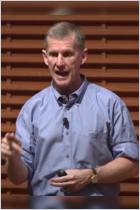Join getAbstract to access the summary!

Join getAbstract to access the summary!
Leonard J. Marcus, Eric J. McNulty, Joseph M. Henderson and Barry C. Dorn
You’re It
Crisis, Change, and How to Lead When It Matters Most
Public Affairs, 2019
What's inside?
To thrive in a crisis, become a transformative meta-leader with a broad understanding of complex systems.
Recommendation
The faculty of the National Preparedness Leadership Initiative at Harvard University interviewed the leaders who responded to the 2013 Boston Marathon bombings, gleaning lessons about meta-leadership in a real-world context. They found that meta-leaders in Boston used “swarm intelligence“ to collaborate and mitigate harm. Leonard J. Marcus, Eric J. McNulty, Joseph M. Henderson and Barry C. Dorn draw on these findings to help leaders harness their analytic capabilities and unite diverse people to work together toward a shared vision, especially amid a crisis. The authors’ insights include how to deal with stress and how to reach a nuanced understanding of complex systems.
Summary
About the Authors
Leonard J. Marcus is the founding co-director of the National Preparedness Leadership Initiative, (NPLI), a joint program of the Harvard T.H. Chan School of Public Health and the Center for Public Leadership at the Harvard Kennedy School of Government. Eric J. McNulty is associate director, Joseph M. Henderson is a senior fellow, and Barry C. Dorn is a senior advisor at the NPLI




















Comment on this summary